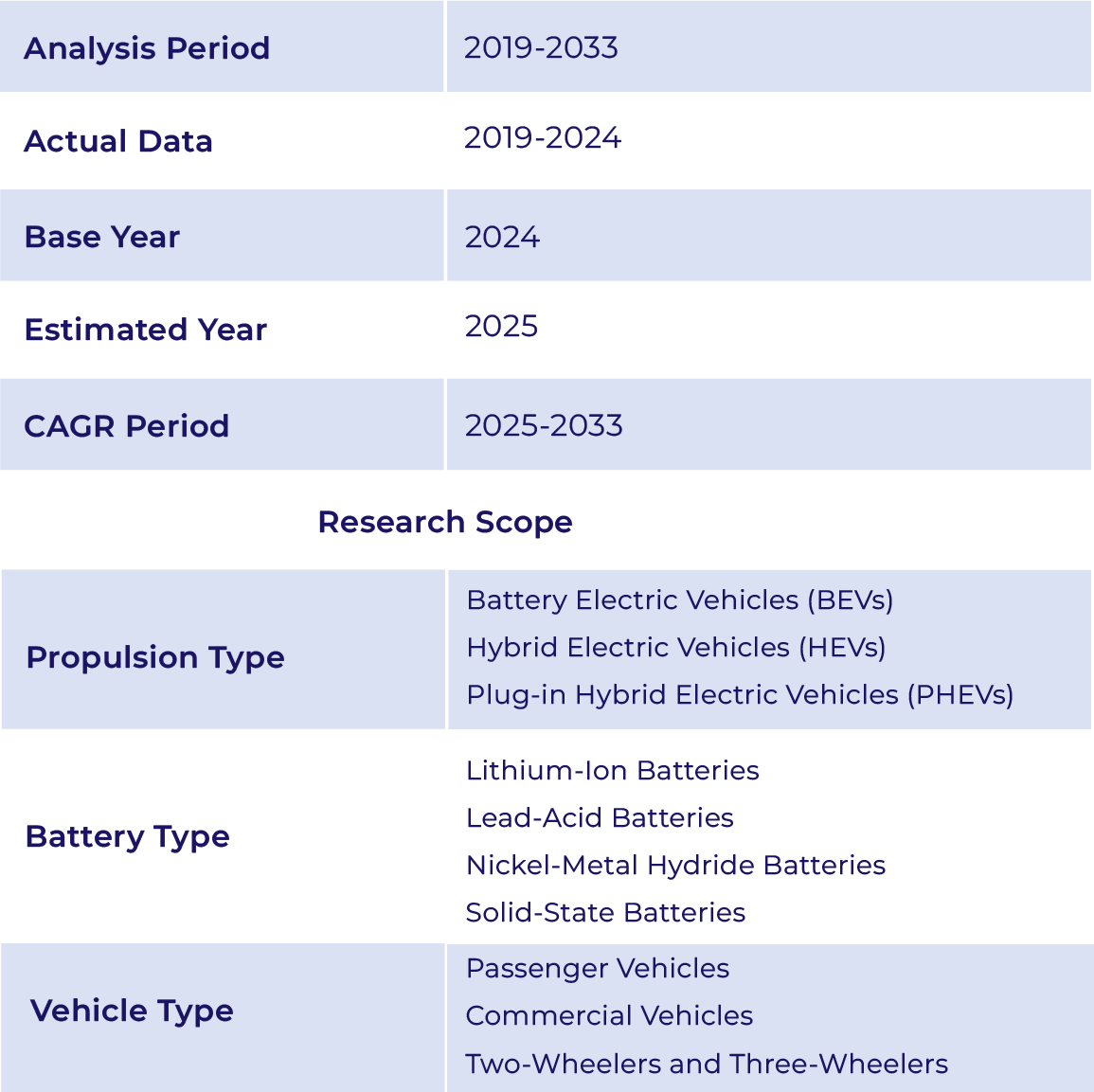Argentina Electric Vehicle Battery Market Outlook
Argentina electric vehicle (EV) battery market is witnessing a dynamic transformation, fuelled by surging global demand for lithium and strategic shifts in national policies. As one of the world’s top lithium producers, Argentina is increasingly central to the EV battery supply chain, attracting robust foreign investments while navigating local development challenges. Following the election of President Javier Milei, the government has prioritized easing restrictions on lithium exports, encouraging major international firms such as Tesla and XtraLit to invest heavily in the country’s abundant reserves. For example, Israeli company XtraLit announced a $104 million investment into Argentina's lithium projects, underscoring the growing global competition for critical minerals.
While the country's lithium production boom supports global EV battery manufacturing, local communities have not equally shared in the benefits. In a case highlighting this disparity, a project to supply Isla Paulino with lithium-based solar energy solutions was stalled despite early government promises. Although UniLib, a public-private initiative, had fully equipped its battery factory by late 2023, the project was halted, leaving island residents reliant on expensive diesel generators. This example illustrates how policy shifts focused on foreign capital inflows sometimes delay domestic infrastructure gains, even in regions critical to EV battery supply.
Argentina's position in the "Lithium Triangle," alongside Bolivia and Chile, positions it advantageously to meet the surging global need for electric vehicle batteries. Nevertheless, the government faces the dual challenge of boosting exports while balancing sustainable development and ensuring local communities benefit. Recent investments emphasize not only raw lithium extraction but also the growing interest in building full EV battery value chains within Argentina. This trend opens doors for domestic employment growth, technological innovation, and regional supply security, key factors as countries diversify away from China-centered battery supply chains.
As the global EV market rapidly expands, driven by decarbonization goals, Argentina’s role as a lithium powerhouse will likely strengthen further. However, to fully capitalize on its natural advantages, the country must also address domestic energy needs, promote transparent regulatory environments, and foster strategic public-private partnerships that prioritize both economic growth and local welfare. The successful establishment of a robust, sustainable EV battery industry could position Argentina not just as a lithium supplier, but as a competitive force in the future of green mobility worldwide.
Argentina Electric Vehicle Battery Market Scope







